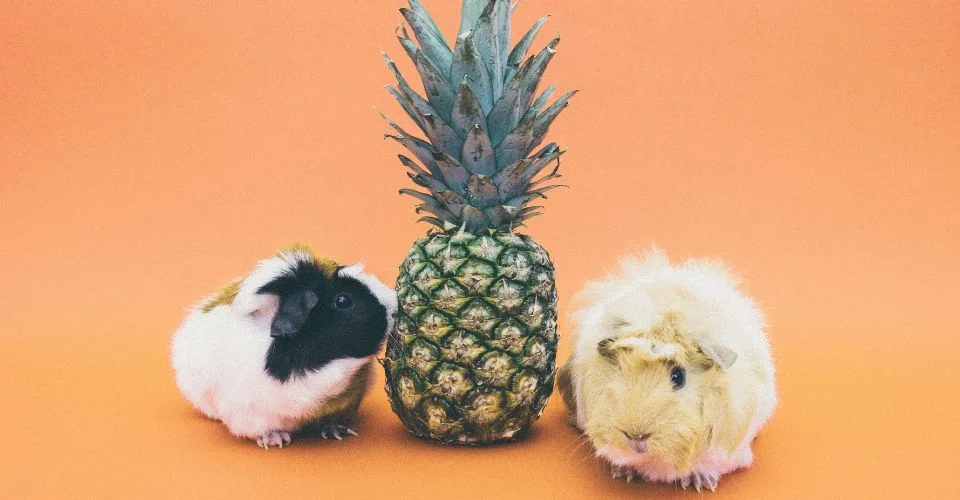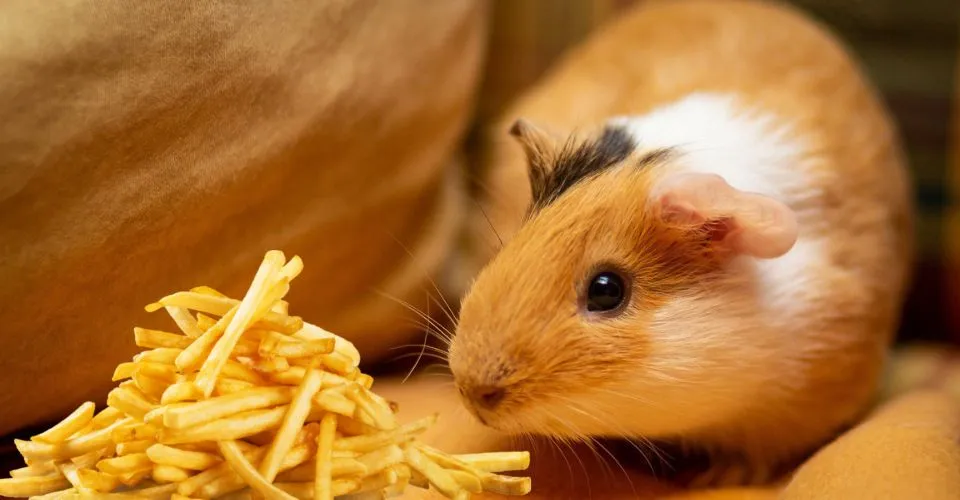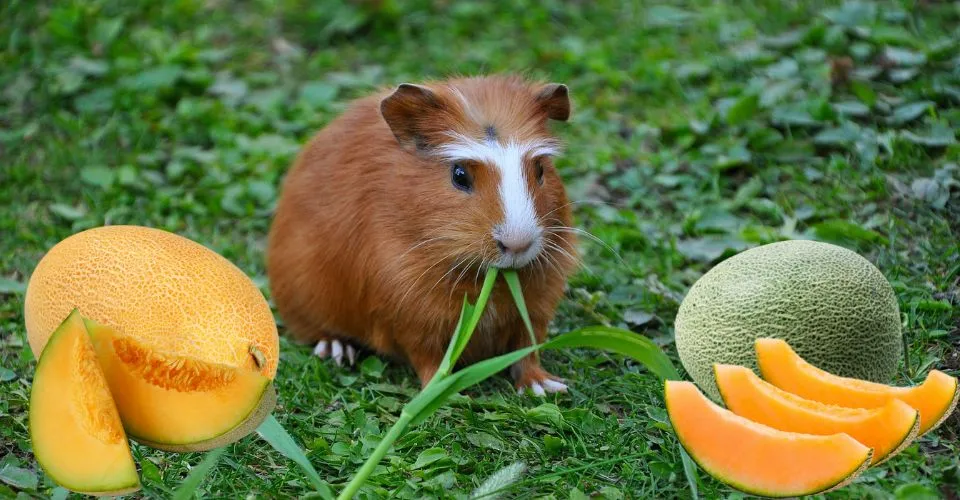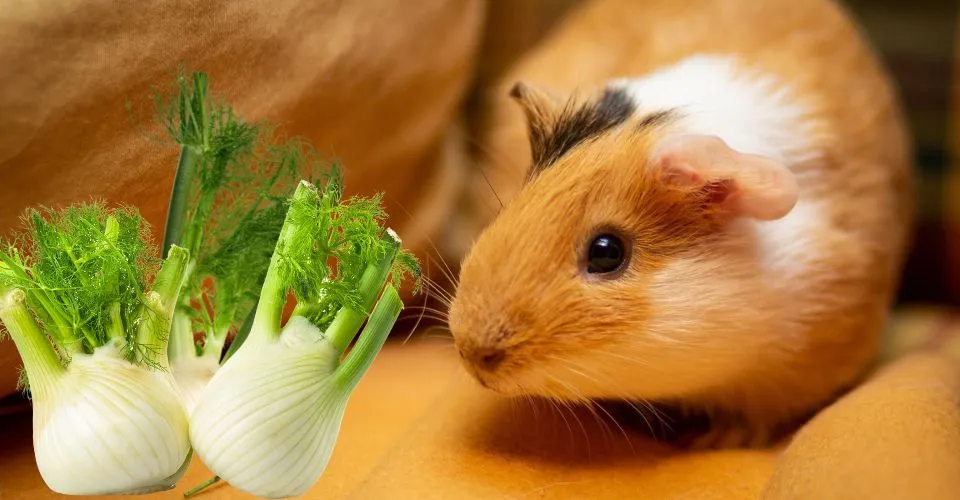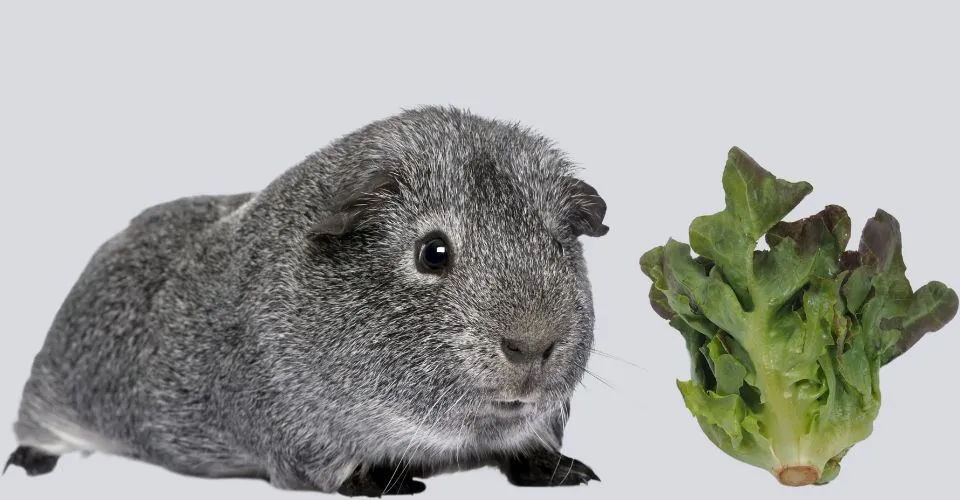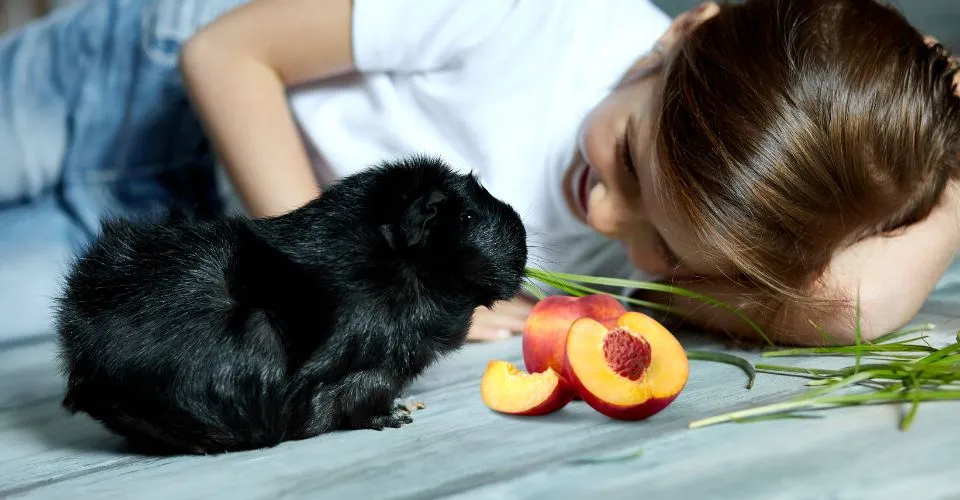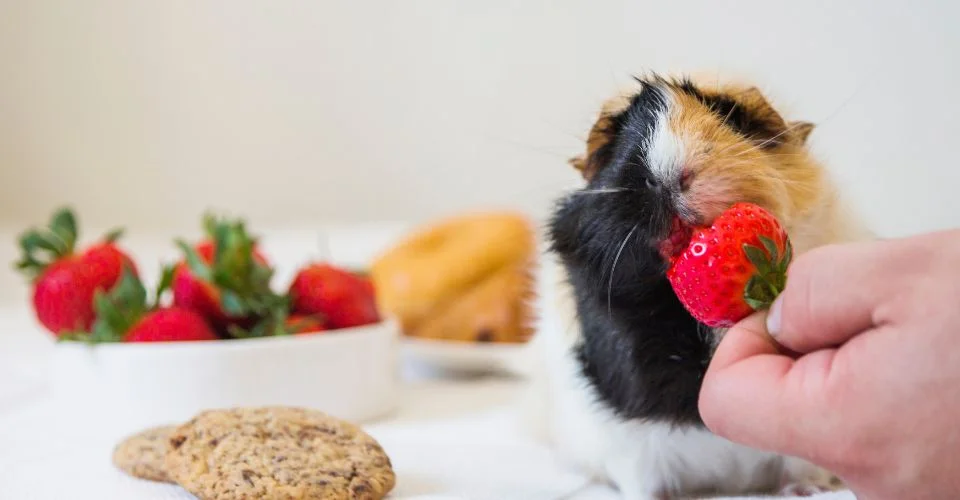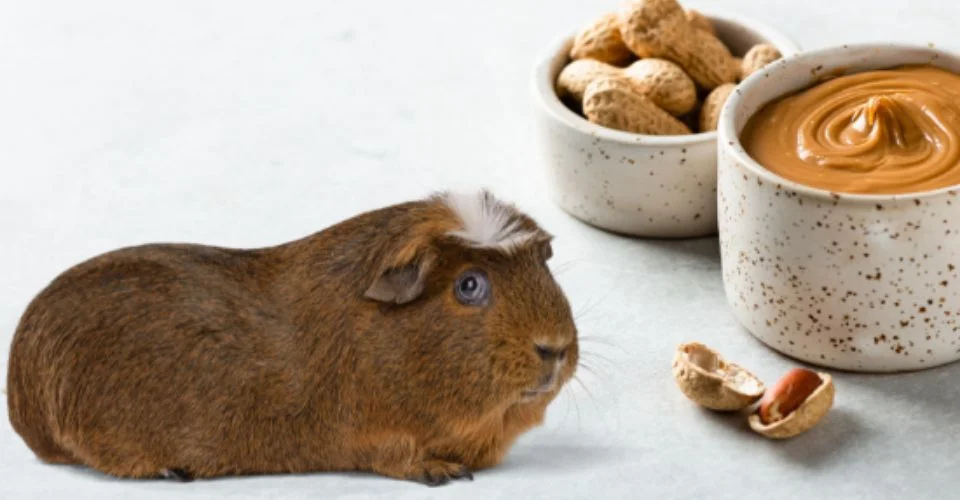Sweet, refreshing, and watery, pineapple is one of the sweetest fruits on earth. As the summer approaches, we start craving the refreshing yellow-golden meat of pineapples. The sweet, tart and tangy taste of pineapple is heavenly, making it irresistible for most humans. But how about sharing some with our little piggies? Can guinea pigs eat pineapple? Are pineapples safe for guinea pigs to eat?
Guinea Pigs and Pineapples
Everyone loves pineapples. Perhaps, you love it too.
Pineapple is a versatile fruit. It goes along with almost everything—you can have pineapple ice creams, pineapple cakes, and pastries, you can even add them to your fried rice and much more. But can we add some to our guinea’s diet?
We know that our nutrition requirements and way of processing food is quite different from that of cavies. This is why many foods that are perfectly safe for humans to eat are dangerous for our guinea pigs. Therefore, it is crucial that before sharing any human food with cavies, we run it by a vet or do some research to make sure that it is perfectly safe for a guinea to eat. As far as guinea pigs and pineapples are concerned, we have got you covered.
In this article, we are going to address: Can guinea pigs eat pineapples? Are pineapples good for guinea pigs? Or Are pineapples bad for guinea pigs?
Can Guinea Pigs Eat Pineapples?
Yes, guinea pigs can eat pineapples. There is nothing in pineapples that is inherently toxic to cavies but still, there are many caveats attached. While feeding pineapples to your cat you should keep in mind that moderation is the key. You should only feed pineapples to your guinea pigs occasionally in small amounts as a treat.
Is Pineapple Good for Guinea Pigs?
Pineapples make a healthy snack for humans. It helps us fight inflammation and cancer, ease digestion, improve the overall immune system, and much more. But can we say the same about cavies? Is pineapple good for guinea pigs? Are there any health benefits of pineapples for guinea pigs?
Given that pineapples are lower in sugar (compared to other sweet treats) and laden with useful nutrients like vitamin C and K, beta-carotene, manganese, and other antioxidants, they make a healthy snack for guinea pigs to eat.
Below we have discussed some of the health benefits of pineapples for guinea pigs.
Improves Cardiac Health
Given that pineapples contain lesser sugar as compared to other sweet treats, it is a healthy dessert for guinea pigs. Not only pineapples are lower in calories, but they are also low in fat. Thus, like other sweet fruits eating pineapple does not mean fat blocking arteries and causing cardiovascular issues.
Pineapple is loaded with magnesium, which is very useful for strengthening heart muscles, ensuring its pumping blood optimally.
Strengthens Immune System
Eating pineapples help piglets fight off many diseases. It contains beta-carotene, which strengthens the overall immunity of guinea pigs, Beta-carotene is also present in oranges and vegetables but it is high in pineapples. Enhanced immunity helps cavies keep many common sicknesses at bay.
Antioxidants Help Cavies Fight Cancer
Pineapples are rich in two important antioxidants, flavonoids, and phenolic acids, which help cavies fight off free radicals that are responsible for causing different types of cancerous diseases in guinea pigs.
Improve Blood Clotting
A well-known coagulant, vitamin K is present in pineapples. This vitamin K helps in blood clotting, which proves to be very helpful in case our piggies suffer from an injury or cut. If your guinea pig scratches herself or suffers some other injury and starts bleeding, a coagulant like vitamin K would help the blood to clot, thus causing bleeding to stop.
Helps Prevent Scurvy
Like humans, guinea pigs cannot make their own vitamin C—they need an external source of it. If cavies are not getting ample vitamin C in their diet, they may suffer from scurvy. A guinea suffering from scurvy would be lethargic, and uninterested in eating. Other symptoms of scurvy in guinea pigs involve diarrhea, difficulty moving, rough coat, and weakness. Given that pineapples are loaded with vitamin C, it can greatly reduce the risk of scurvy in guinea pigs.
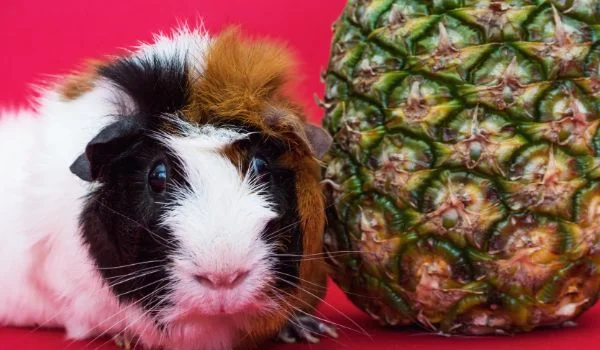
Are pineapples Bad for Guinea Pigs?
Ok pineapples have many health benefits to offer to our little cavies but are there any health concerns?
Well, pineapples make a healthy treat for guinea pigs and have loads of health benefits to offer to piggies. But it should only be fed to guinea pigs in moderation—occasionally in small amounts—as a treat.
| Moderation is the Key! Let alone pineapples, while feeding any human food to guinea pigs, we should keep in mind that moderation is the key. We should never make it an integral part of their routine diet. |
If you are not careful while feeding pineapples to your guinea pigs, they may suffer from the following health hazards.
Increased Risk of Obesity
No doubt, pineapples contain comparatively low sugar content, but it is still too much for guinea pigs, especially if they consume pineapple in excess. An excessive amount of sugar can lead to your guinea pigs gaining weight and slowly becoming overweight and eventually an obese to a fat guinea pig. Fta guinea pigs might look cute and adorable but you should keep in mind that obesity leads to many health issues.
Lose Stool to Diarrhea
The digestive system of guinea pigs is not designed to process sugars as effectively as humans do. So, where eating pineapples in moderate amounts won’t cause any trouble, eating it in excess would lead to an upset stomach, loose stool, and diarrhea, which can lead to weight loss in a guinea pig.
Kidney Issues
Eating pineapples in excess increases the risk of our guinea pigs developing phosphate stones. Pineapples are high in calcium, which is required for bone and teeth health and development when a guinea pig is growing. However, when guinea pigs are fully grown, there is not much need for calcium for guineas. Therefore, eating excessive pineapples that contain a lot of calcium would increase the risk of your guinea developing phosphate stones in the urinary tract, causing urinating problems.
Mouth Sourness
If pineapple is not fully ripe, it can be sour—really sour—in taste. This acidity of pineapples can cause stomach discomfort, and mouth sores in guinea pigs. Therefore, you not only share pineapple with guinea pigs occasionally in small amounts but also make sure that you do not offer them unripe fruit.
Can Guinea Pigs Eat Pineapple Leaves?
No, guinea pigs cannot eat pineapples for two reasons: one, pineapple leaves would be a bit hard for our little guinea pigs to safely digest. Second, they also pose a choking hazard to cavies. Third, pineapple leaves also contain small thorns which could get into the throat and triggers a shock. Therefore, it is best that we safely discard pineapple leaves.
Can Guinea Pigs Eat Pineapple Skin?
No guinea pigs cannot have hard pineapple skin. Just like pineapple leaves, pineapple skin is also a bit hard for guinea pigs to it. It poses a serious choking and indigestion hazard to little piglets. On top of that, given that many different chemicals and pesticides are used for the growth of pineapples, feeding pineapple skin to guinea pigs would be hazardous.
Can Guinea Pigs Have Canned Pineapple?
No, you should not give canned pineapple to your guinea pig. Actually, manufacturers often use preservatives and other chemicals to increase the shelf age of pineapples. These preservatives could be unhealthy for our little piglets.
Can Guinea Pigs Eat Dried Pineapple?
No, guinea pigs cannot eat dried fruit. Technically, they can eat it but there will be serious consequences.
Dried pineapple contains more sugars, calcium, and overall calories, which make it an unhealthy treat for guinea pigs. On top of that, dried pineapple also contains lesser vitamin C, which undercuts the health benefits that fresh pineapples have to offer to our little piglets. Therefore, it is best that we avoid giving dried pineapples to our cavies and only stick to fresh and ripe pineapples in moderate amounts.
Can Guinea Pigs Have Pineapple Every Day?
No, pineapple surely has to offer multiple health benefits to our piglets but it poses several health risks as well. If we are feeding pineapple to our guinea pigs in moderate amounts, the health benefits would be abundant with little to no health risks. That said if we get careless and let our cavies eat pineapple in excess and make it a routine part of their diet, it would be counterproductive—it will increase the health risks and decrease the health benefits. Therefore, always keep in mind that Moderation is the Key!
How often should I give pineapple to my guinea pig?
You should give it occasionally, maybe once a week. Even while giving it once a week you should make sure that you do not give them too much of it. At most, you can give it twice a week in small amounts as a treat.
How to Feed Pineapple to Guinea pigs?
- Get a fresh and ripe pineapple at room temperature
- Get rid of the skin, top, bottom, and core of the pineapple
- Now dice pineapple into small cubes
- If you want you can mash cubes before giving them to your cavy
- Serve two or three dices to your cavy
- If the cavy wants more pineapple, do not give it to it. It would only cause them harm.
Final Verdict: Can Guinea Pigs Eat Pineapple?
Yes! Guinea pigs can eat pineapples occasionally—once or twice a week.
In moderate amounts, pineapple help guinea pigs maintain a healthy immune system, fight off cancer and prevent scurvy. It also improves cardiac health and blood clotting in guinea pigs. When eaten in excess, it could lead to obesity, mouth soreness, loose stool, and kidney issues.
Check out other guides to what guinea pigs can or cannot eat:
